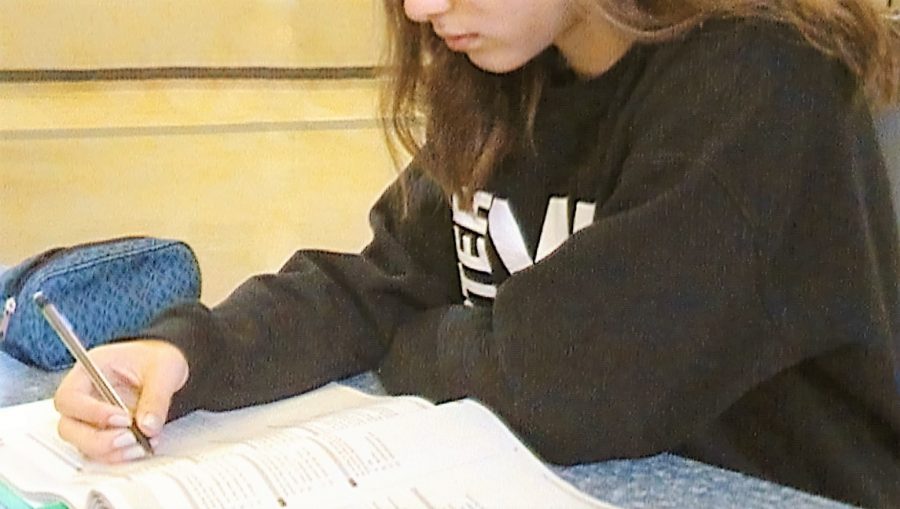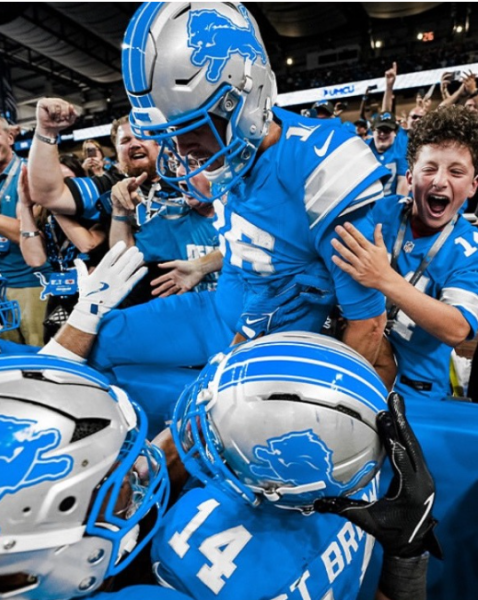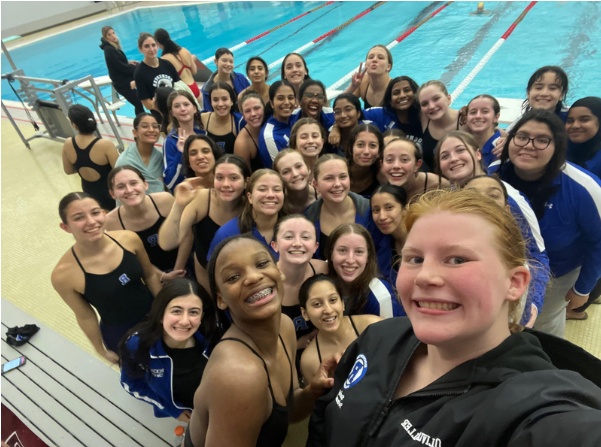RHS Juniors Prepare for PSAT
An RHS student reviews for the PSAT.
October 16, 2016
Students from RHS and around the country will take the preliminary SAT (PSAT) on Oct. 19. Created in 1926, the test has many functions, though its main purpose is to “measure readiness for college, access scholarships, and practice for the SAT,” according to College Board. Learning Consultant Mrs. Aubrey Trimble says the test is an important part of a student determining their SAT readiness.
“The PSAT is a practice assessment for the SAT, so it’ll give you good information about where your strengths and weaknesses are as a test taker,” Mrs. Trimble said.
PSAT results are posted on a website called College Board, which lets users see what questions they got wrong, and gives advice on where to improve. It also has practice tests that will give students an idea of concepts they need to study.
“In ninth grade if you take the PSAT, put it into College Board, link into Khan Academy, then you can sit down in Khan Academy and as much as you want to practice in the next three years for when you take the actual SAT,” Mrs. Trimble said. “You can practice on areas you may be weaker in and become stronger in those. It will help you learn test taking strategies that will help you do better on the SAT which is part of a college entrance.”
Senior Gabi Rodriguez says that the PSAT was helpful in determining how much she needed to improve and what she needed to improve. She says seeing her PSAT scores also helped motivate to do more SAT prep.
“It kind of gave me an idea of where I was and where I needed to go, and how much I needed to get there to reach my goal,” Rodriguez said. “It kind of encouraged me to do better and to prepare for the SAT.”
Mrs. Trimble believes studying for the PSAT is highly important in order to determine how much improvement is need to the SAT.
“[The PSAT] is not something you should study just the week before you take the test.” Mrs. Trimble said. “It’s something you work on as soon as you take a practice test. It gives you really good information that can help you decide how much time you want to put into it. I definitely think it’s something you should start thinking about as a ninth grader.”
Junior Brendan Murphy says he did not study for the PSAT because he had other classes that needed his attention.
“I had other classes I had to focus on so I figured if it’s not really going to affect my grade, why study?” Murphy said.
One important reason to study for the PSAT is because it determines eligibility for the National Merit Scholarship. Worth $2,500, and a very prestigious title, eligibility is based on those receiving the highest PSAT scores across the country. According to the National Merit Scholarship Corporation website, about 50,000 students qualify for the National Merit Scholarship Program, which is about 3 percent of eleventh grade students. About one-third of those students will become semifinalists, and will then fill out an application to become finalists. In the end, about 8,000 students in the United States will be selected for the scholarship.
Another benefit of taking the PSAT is that it gives schools an idea of how they could improve their curriculum in order to better prepare students for the test and provide them with a quality education. Mrs. Trimble says the school will be taking data from last year’s PSAT scores and using it to help structure teaching strategies.
“Teachers are going to be able to tweak their instructional strategies to make sure we’re meeting the need of our kids,” Mrs. Trimble said. “It also let us identify some kids that were really close to hitting that benchmark assessment so we’ll be working with those kids individually. It gave us really good data to make better decisions moving forward on instruction in our classroom.”
Despite changes made in the school curriculum, some students would like to change the test itself. Junior Adalyn Clark says that she would like to alter the math section of the test so it reflects what she learned in class.
“I suppose for math stuff I’d actually like it if the answers were based off of what we learned in class, because right now apparently they use an entire different form for their answers,” Clark said. “I’d just like it to be the same, so I don’t have to learn entirely different stuff for it.”
Junior Blake Bagley, a history fan, would like to add a historical aspect to the test.
“[I’d make it] a little bit shorter and maybe add history to it, because I like history and I think it’s a fun subject that people still need to know about,” Bagley said.
No matter the subject matter, Mrs. Trimble urges all students to treat the exam seriously as an important step in SAT prep.
“Take it seriously so that the information you get will give you the best information for how you do on the SAT.” Mrs. Trimble said. “If you don’t take the PSAT serious, rush through it or you don’t do your best, then the information that you’re going to get isn’t going to be valuable to you as a learner.”
Rodriguez agrees with Mrs. Trimble’s sentiment, as she took the exam seriously her junior year.
“I tried my hardest. I think it was just about seeing how difficult it was going to be for me. I did take it seriously but I didn’t worry it too much because it’s just a practice test,” Rodriguez said. “It’s just so you know what it’s going to be like for the actual thing.”
Both Bagley and Murphy say they took most of the exam seriously, but tried harder on some parts more than others. Bagley says since he doesn’t like math he didn’t find that part to be quite as pressing, while Murphy says he began guessing more the longer the test was drawn out. Clark says that she took the exam seriously, but didn’t stress over it too much.
“I try my hardest, definitely. But I don’t kill myself about it if I don’t do well on the pretest,” Clark said. “It just means that I have more studying to do for the SAT.”
Though she recognizes that the test is a serious matter and had many important purposes, Rodriguez, who took the PSAT last year, has a helpful piece of advice for all students taking the test.
“They should put less stress on the exam,” Rodriguez said. “A lot of people are worried about it and I feel like they should just not make it that big of a deal. It is a big deal because it’s what you’ve learned throughout high school, but a lot of students freak out and they should just be more relaxed about it.”







